Fleurs du Mal Magazine


Or see the index
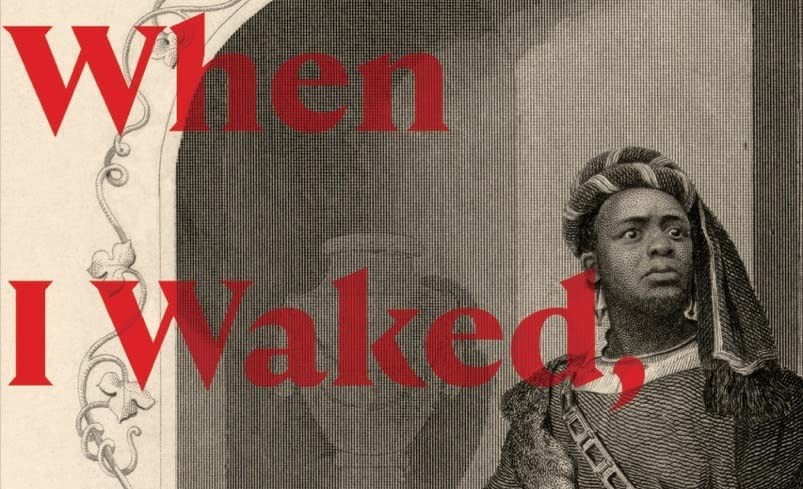
A dynamic, moving hybrid work that celebrates Black youth, often too fleeting, and examines Black lives lost to police violence.
In this astonishing volume of poems and lyric prose, Whiting Award–winner A. Van Jordan draws comparisons to Black characters in Shakespearean plays―Caliban and Sycorax from?The Tempest, Aaron the Moor from?Titus Andronicus, and the eponymous antihero of? Othello―to mourn the deaths of Black people, particularly Black children, at the hands of police officers. What do these characters, and the ways they are defined by the white figures who surround them, have in common with Tamir Rice, Trayvon Martin, and other Black people killed in the twenty-first century?
Balancing anger and grief with celebration, Jordan employs an elastic variety of poetic forms, including ekphrastic sestinas inspired by the photography of Malick Sidibé, fictional dialogues, and his signature definition poems that break down the insidious power of words like “fair,” “suspect,” and “juvenile.” He invents a new form of window poems, based on a characterization exercise, to see Shakespeare’s Black characters in three dimensions, and finds contemporary parallels in the way these characters are othered, rendered at once undesirable and hypersexualized, a threat and a joke.
At once a stunning inquiry into the roots of racist violence and a moving recognition of the joy of Black youth before the world takes hold, When I Waked, I Cried to Dream Again expresses the preciousness and precarity of life.
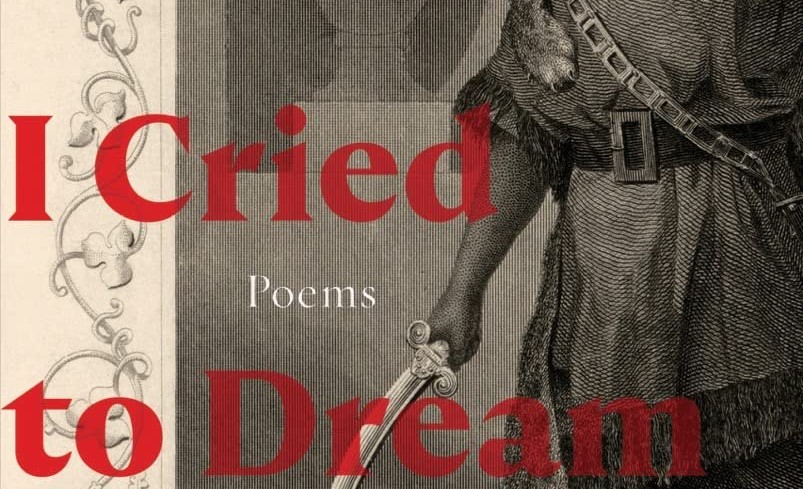
A. Van Jordan is the author of four collections: Rise, which won the PEN/Oakland Josephine Miles Award (Tia Chucha Press, 2001); M-A-C-N-O-L-I-A, (2005), which was listed as one the Best Books of 2005 by The London Times; Quantum Lyrics, (2007); and The Cineaste, (2013), W.W. Norton & Co. Jordan has been awarded a Whiting Writers Award, an Anisfield-Wolf Book Award, and a Pushcart Prize. He is also a recipient of a Guggenheim Fellowship (2007), a United States Artists Fellowship (2009), and a Lannan Literary Award in Poetry (2015).
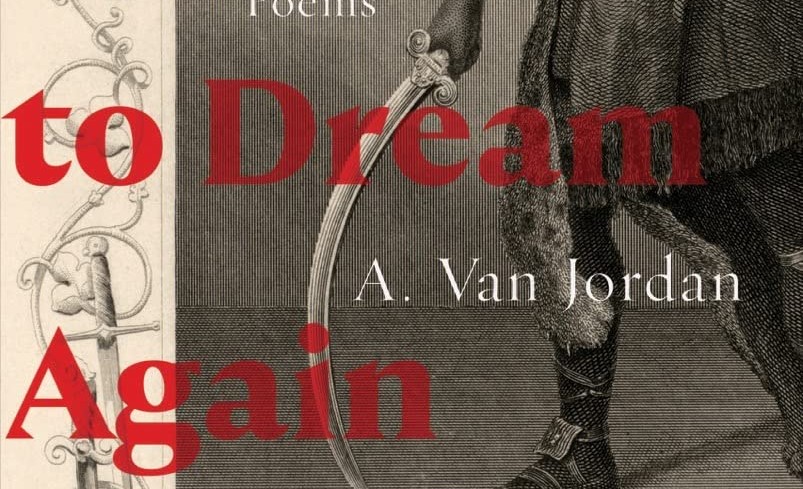
When I Waked, I Cried To Dream Again:
Poems by A. Van Jordan
Publisher: W. W. Norton & Company (June 6, 2023)
Language: English
Hardcover
144 pages
ISBN-10 : 1324050934
ISBN-13 : 978-1324050933
Price $26.95
fleursdumal.nl magazine
More in: #Modern Poetry Archive, - Book News, - Bookstores, Archive I-J, Archive I-J, Racism
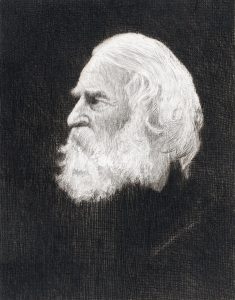
Aftermath
When the summer fields are mown,
When the birds are fledged and flown,
And the dry leaves strew the path;
With the falling of the snow,
With the cawing of the crow,
Once again the fields we mow
And gather in the aftermath.
Not the sweet, new grass with flowers
Is this harvesting of ours;
Not the upland clover bloom;
But the rowen mixed with weeds,
Tangled tufts from marsh and meads,
Where the poppy drops its seeds
In the silence and the gloom.
Henry Wadsworth Longfellow
(1807–1882)
Aftermath
• fleursdumal.nl magazine
More in: Archive K-L, Archive K-L, Longfellow, Henry Wadsworth
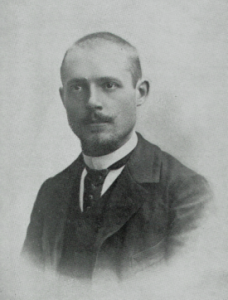
Paris double galère
Depuis le Point-du-Jour jusqu’aux cèdres bibliques
Double galère assise au long du grand bazar,
Et du grand ministère, et du morne alcazar,
Parmi les deuils privés et les vertus publiques ;
Sous les quatre-vingts rois et les trois Républiques,
Et sous Napoléon, Alexandre et César,
Nos pères ont tenté le centuple hasard,
Fidèlement courbés sur tes rames obliques.
Et nous prenant leur place au même banc de chêne,
Nous ramerons des reins, de la nuque, de l’âme,
Pliés, cassés, meurtris, saignants sous notre chaîne ;
Et nous tiendrons le coup, rivés sur notre rame,
Forçats fils de forçats aux deux rives de Seine,
Galériens couchés aux pieds de Notre Dame.
Charles Péguy
(1873 – 1914)
Paris double galère
1913
• fleursdumal.nl magazine
More in: # Classic Poetry Archive, Archive O-P, Archive O-P, FDM in Paris, Peguy, Charles, WAR & PEACE

Gedicht über Nachtwirkungen
Noch nicht Tag! Die fratzenhafte Nacht
hat mich Stück für Stück entzweigerissen.
Wehe Striemen drücken mir die Kissen,
jede Falte hat mich wund gemacht.
Und der Träume quälerische Schwere:
Wollust, Ekel, Schmerzen, Tränen, Mord,
treibt mein Herz auf einem dunklen Meere
wie ein purpurrotes Segel fort.
Bin ein zitternd Geflecht von Nerven,
allem Bösen in die Hand gegeben,
Und die Schatten sind wie Messerschärfen,
die von meinem Zucken trunken leben.
Und ich möchte in das Dunkel schrein.
Aber meine Stimme ist nicht mehr.
Wilder Bilder ewige Wiederkehr,
stumm, gestaltlos, haltlos muss ich sein!
Hans Ehrenbaum-Degele
(1889 – 1915)
Gedicht über Nachtwirkungen
• fleursdumal.nl magazine
More in: #Experimental Poetry Archive, *War Poetry Archive, - Archive Tombeau de la jeunesse, Archive E-F, Archive E-F, Expressionism, Modernisme
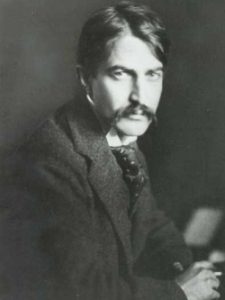
Behold, the grave of a wicked man
Behold, the grave of a wicked man,
And near it, a stern spirit.
There came a drooping maid with violets,
But the spirit grasped her arm.
“No flowers for him,” he said.
The maid wept:
“Ah, I loved him.”
But the spirit, grim and frowning:
“No flowers for him.”
Now, this is it —
If the spirit was just,
Why did the maid weep?
Stephen Crane
(1871 – 1900)
Behold, the grave of a wicked man
• fleursdumal.nl magazine
More in: *War Poetry Archive, Archive C-D, Archive C-D, Stephen Crane

Les regrets
Justine est seule et gémissante,
Et mes yeux avec intérêt
La suivent dans ce lieu secret
Où sa chute fut si touchante.
D’abord son tranquille chagrin
Garde un morne et profond silence :
Mais des pleurs s’échappent enfin,
Et coulent avec abondance
De son visage sur son sein ;
Et ce sein formé par les Grâces,
Dont le voluptueux satin
Du baiser conserve les traces,
Palpite encore pour Valsin.
Dans sa douleur elle contemple
Ce réduit ignoré du jour,
Cette alcôve, qui fut un temple,
Et redit : Voilà donc l’Amour !
Évariste de Parny
(1753-1814)
Les regrets
Poésies fugitives (1787)
• fleursdumal.nl magazine
More in: # Classic Poetry Archive, Archive O-P, Archive O-P

Chaucer
An old man in a lodge within a park;
The chamber walls depicted all around
With portraitures of huntsman, hawk, and hound,
And the hurt deer. He listeneth to the lark,
Whose song comes with the sunshine through the dark
Of painted glass in leaden lattice bound;
He listeneth and he laugheth at the sound,
Then writeth in a book like any clerk.
He is the poet of the dawn, who wrote
The Canterbury Tales, and his old age
Made beautiful with song; and as I read
I hear the crowing cock, I hear the note
Of lark and linnet, and from every page
Rise odors of ploughed field or flowery mead.
Henry Wadsworth Longfellow
(1807–1882)
Chaucer
• fleursdumal.nl magazine
More in: Archive K-L, Archive K-L, Geoffrey Chaucer, Longfellow, Henry Wadsworth

Letzte Lieder
–––––––––––––
Und leise, traumhaft wieder
Die Harfe mir erklang,
Es sind die letzten Lieder,
Die ich hienieden sang.
Es ist von meinem Herzen
Gelöst der letzte Hauch
––––––––––––––
––––––––––––––
Alfred Teniers.
1.
Schwarz und still in meinem Hirn,
Schwarz und still in meiner Stube,
Nur der Pendel meiner Uhr
Hüpfet wie ein munt’rer Bube.
Plötzlich zuckt auf Deinem Bild,
Farblos, wie auf einem Grabe –
Ein verirrter Mondenstrahl,
Mahnt, daß ich noch Thränen habe.
2.
Ist es Friede, ist es Glück,
Was durch meine Träume zieht,
Unsichtbar, wie Blumenduft,
Leise, wie ein Kindeslied?
Kehrt die Jugend mir zurück,
Jene Sehnsucht, die mich mied,
Seit des Lebens kalte Luft
Mich und meine Seele schied?
3.
Durch die dicht verhängten Fenster
Dringt das dumpfe Wagenrollen,
Und verscheucht die Nachtgespenster,
Die im Traum mir nahen wollen.
Aber rauschend durch mein Zimmer
Wogt ein Meer von wirren Tönen,
Und aus all’ dem Schmerzgewimmer
Hör’ ich meine Seele stöhnen!
Hör’ ich meine Seele weinen –
Nicht um dieses Leibes Sterben –
Doch es bangt ihr vor dem kleinen,
Müden, einsamen Verderben.
4.
Über meinem Lager hängt,
Welk, bestaubt und abgestorben,
Ein beflorter Lorbeerkranz
Neben Myrthen, längst verdorben.
Und in meinem Fiebertraum
Schaute ich sie wieder blühen –
Und mich selber jugendfreudig
Unter ihrem Duft erglühen.
Aber ach, das Fieber schwand.
Welk, so wie mein eig’nes Leben,
Schaue ich die Kränze dort
Nur an dünnen Fäden schweben.
5.
Der alte Kampf ist ausgekämpft;
Weit hinter mir liegt jede Qual,
70Es fiel in meines Lebens Frost
Der erste warme Sonnenstrahl.
Weit hinter mir liegt Groll und Leid
Durch milde Thränen aufgethaut.
Mein Auge hat zum ersten Mal
Die Wahrheit und das Glück geschaut.
6.
Leg’ auf mein Haupt, so fieberheiß,
Die kühle weiche Hand,
Mein brennend Antlitz wende leis’
Und sachte hin zur Wand;
Es ist so schwer mein Augenlied
Daß ich’s nicht heben kann,
Und meine Lippe dürr’ und müd’
O schaue mich nicht an! –
Wend’ sachte mein Gesicht zur Wand;
Kann ich Dich auch nicht seh’n,
Fühl’ ich doch Deine weiche Hand
Und Deines Athem’s Weh’n.
7.
Rasch durch das dunkle Zimmer huscht
Mein Vogel, traurig singend,
Er will hinaus in’s Sonnenlicht,
Er zwitschert schüchtern-dringend.
Flieg’ in die kalte fremde Welt,
Flieg’ über Thal und Hügel,
Du kleiner Vogel, hast ja heut’
Noch ungebroch’ne Flügel. –
8.
Es pfeift der Wind sein frostig Lied,
Und eiserstarrte Tropfen
Wirft klirrend an die Scheiben er,
Die Kranken wach zu klopfen.
Die alte Frau an meinem Bett
Nickt müd’, in Schlaf versunken,
Die Kohlen im Kamine sprüh’n
Bei jedem Windstoß Funken.
Aufhorchend knurrt der kleine Hund,
Um ächzend fortzuträumen,
Das Lampenlicht spielt flackernd roth
Mit der Tapete Bäumen.
Der nackten Göttin weißes Bild
Lacht höhnisch auf mich nieder.
Es pfeift der Wind – Gedanken zieh’n. –
Ich find’ den Schlaf nicht wieder.
9.
Leg’ Du mich in den Sarg hinein,
Schließ Du den Deckel zu,
Und hinter meinem Sarg allein,
Geh’ Du – Niemand als Du.
Den ich geliebt, und Leid’s gethan
Warst Du – nur Du allein….
Komm’ nie zu meinem Grabe Mann,
Ich will vergessen sein.
Ada Christen
(1839 – 1901)
Letzte Lieder
1870
• fleursdumal.nl magazine
More in: # Classic Poetry Archive, Archive C-D, Archive C-D, Christen, Ada
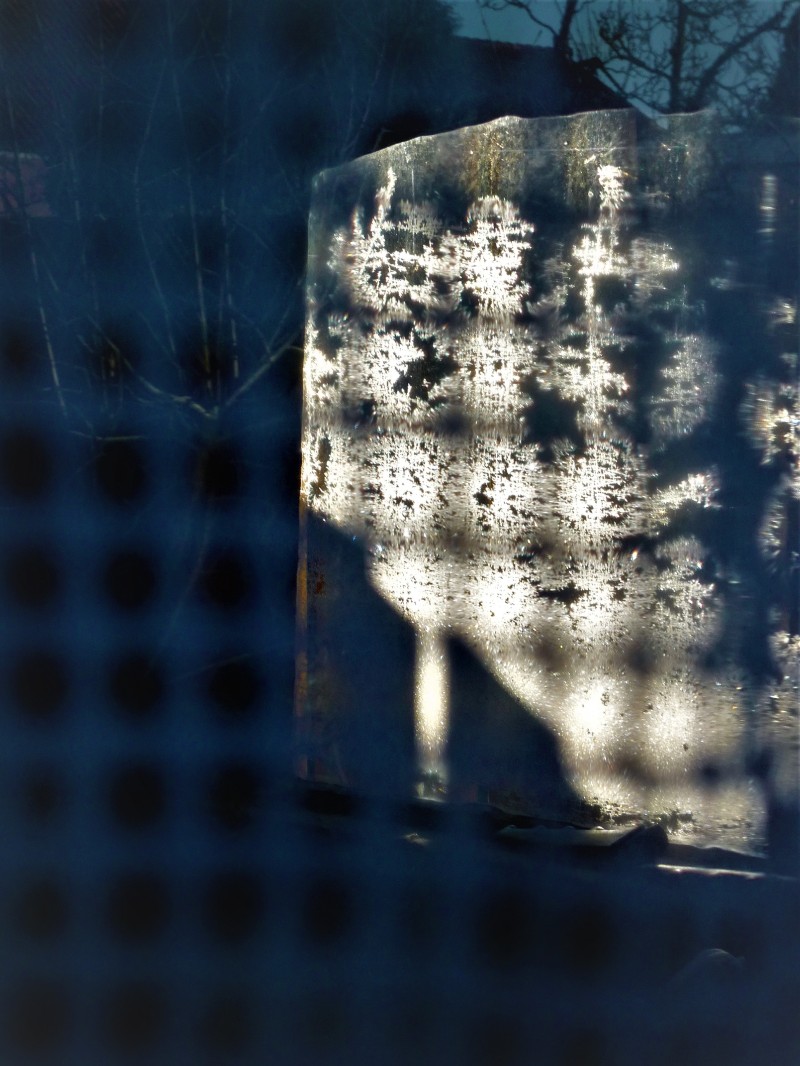
freda kamphuis
ijsbloemen
• fleursdumal.nl magazine
More in: Archive K-L, Archive K-L, Freda Kamphuis, Kamphuis, Freda, Photography
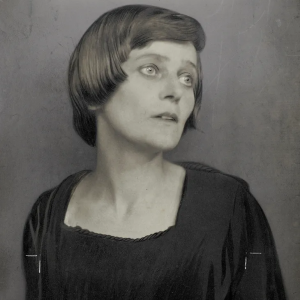
Morfin
Wir warten auf ein letztes Abenteuer
Was kümmert uns der Sonnenschein?
Hochaufgetürmte Tage stürzen ein
Unruhige Nächte – Gebet im Fegefeuer.
Wir lesen auch nicht mehr die Tagespost
Nur manchmal lächeln wir still in die Kissen,
Weil wir alles wissen, und gerissen
Fliegen wir hin und her im Fieberfrost.
Mögen Menschen eilen und streben
Heut fällt der Regen noch trüber
Wir treiben haltlos durchs Leben
Und schlafen, verwirrt, hinüber…
Emmy Hennings
(1885 – 1948)
Morfin
• fleursdumal.nl magazine
More in: Archive G-H, Archive G-H, Emmy Hennings, Hennings, Emmy, Opium-Eaters, Performing arts
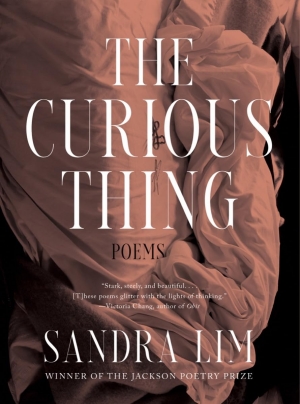
In this gorgeous third collection, Sandra Lim investigates desire, sexuality, and dream with sinewy intelligence and a startling freshness.
Truthful, sensuous, and intellectually relentless, the poems in The Curious Thing are compelling meditations on love, art making, solitude, female fate, and both the mundane and serious principles of life. Sandra Lim’s poetry displays stinging wit and a tough-minded approach to her own experiences: She speaks with Jean Rhys about beauty, encounters the dark loneliness that can exist inside a relationship, and discovers a coiled anger on a hot summer day.
An extended poem sequence slyly revolves the meanings of finding oneself astray in midlife. A steely strength courses through the volume’s myriad discoveries―Lim’s lucidity and tenderness form a striking complement to her remarkable metaphors and the emotional clamor of her material.
Animated by a sense of reckoning and a piercing inwardness, these anti-sentimental poems nevertheless celebrate the passionate and empathetic subjective life.
Sandra Lim was born in Seoul, South Korea. She is the author of three poetry collections, The Curious Thing, Loveliest Grotesque and The Wilderness, chosen by Louise Glück for the Barnard Women Poets Prize. She has received many honors for her work, including the Levis Reading Prize, an Award in Literature from the American Academy of Arts and Letters, and fellowships from MacDowell and the Getty Foundation. She is a Guggenheim Fellow in poetry and lives in Cambridge, Massachusetts.
Sandra Lim:
The Curious Thing.
Poems
Language: English
Publisher: W. W. Norton & Company
October 10, 2023
80 pages
Paperback
ISBN: 978-1-324-06618-7
Price $16.95
Hardcover
ISBN: 978-0-393-86789-3
Price $26.95
• fleursdumal.nl magazine
More in: #Editors Choice Archiv, - Book News, - Bookstores, Archive K-L, Archive K-L
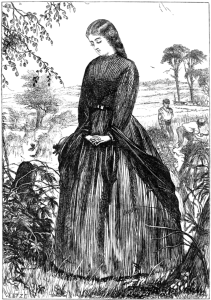
Among the sheaves
I
Among the sheaves—the golden sheaves,
An empty heart, I walk forlorn:
How sadly sigh the alder leaves—
I loathe those fields of mellow corn!
II
Among the sheaves—the golden sheaves,
My heart is full, new hopes are born:
My heart is faint—for Hope deceives:
My passion may be met by scorn!
III
Among the sheaves—the golden sheaves,
My Love is won! No more forlorn,
How sweet the whisp’ring alder leaves—
I bless those fields of mellow corn!
Evelyn Forest
(Pen name of Anne Pares)
( … – … unknown)
Among the sheaves
Illustration: Frederick Eltze (1836–1870)
• fleursdumal.nl magazine
More in: # Classic Poetry Archive, Archive E-F, Archive E-F, Archive O-P, Archive O-P
Thank you for reading Fleurs du Mal - magazine for art & literature